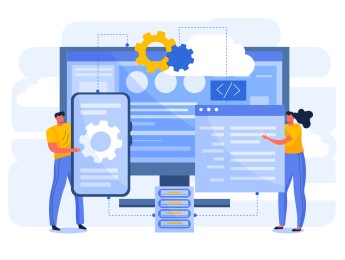In today's interconnected world, health challenges are no longer confined within national borders. Global health diplomacy plays a crucial role in addressing public health issues through international cooperation, policy negotiations, and cross-sector partnerships. The ability to engage in diplomatic discussions and advocate for equitable health policies is essential for professionals working in global health governance.
This course provides participants with the knowledge and skills needed to navigate the complex landscape of global health diplomacy. Through an exploration of international health systems, multilateral agreements, and negotiation strategies, participants will develop practical tools to drive impactful change. The training focuses on real-world case studies, interactive discussions, and strategic planning exercises to equip professionals with the ability to influence health policies on a global scale.
By the end of this course, participants will be able to:
- Discuss the foundations and evolution of global health diplomacy.
- Identify key stakeholders and institutions shaping global health policies.
- Analyze the role of multilateral agreements and governance structures in health policy-making.
- Explore financing mechanisms and funding sources for global health initiatives.
- Understand major global health security threats and response strategies.
- Develop negotiation and advocacy strategies to promote health equity.
- Apply diplomatic skills in real-world global health negotiations.
This course is ideal for professionals involved in shaping global health policies, managing international collaborations, or influencing health diplomacy efforts. Suitable participants include:
- Public Health Officials.
- Diplomats and Government Representatives.
- International Development Professionals.
- Healthcare Executives and Policy Makers.
- NGO Leaders and Advocacy Specialists.
- Researchers and Academics in Global Health.
The training methodology of this course is designed to strike a balance between theoretical knowledge and practical application, ensuring an engaging and comprehensive learning experience. Participants will take part in interactive lectures and expert-led discussions that provide valuable insights into key concepts. Through case studies, they will analyze real-world global health challenges, gaining a deeper understanding of critical issues. Simulated negotiation and policy advocacy exercises offer hands-on practice in strategic decision-making, while group workshops encourage collaboration in developing innovative solutions. Additionally, peer-to-peer learning and networking opportunities foster knowledge exchange and professional connections, enhancing the overall educational experience.
Day 5 of each course is reserved for a Q&A session, which may occur off-site. For 10-day courses, this also applies to day 10
Section 1: Foundations of Global Health Diplomacy
- Definition and significance of global health diplomacy.
- Historical evolution and major milestones.
- The role of health in international relations and foreign policy.
- Key players in global health diplomacy: WHO, UN, NGOs, private sector.
- The intersection of health, economics, and security in diplomacy.
Section 2: Global Health Governance and Policy Frameworks
- Overview of international health governance structures.
- Policy frameworks guiding global health diplomacy.
- The role of international treaties and agreements in shaping health policies.
- Health summits and their impact on international cooperation.
- Case studies on effective policy implementation.
Section 3: Health Financing and Economic Considerations
- Key funding mechanisms in global health.
- The role of international financial institutions in health diplomacy.
- Public-private partnerships and philanthropic contributions.
- The impact of political and economic factors on global health funding.
- Case studies on successful global health financing initiatives.
Section 4: Global Health Security and Emergency Preparedness
- Understanding global health security threats.
- Strategies for pandemic preparedness and response.
- The role of international cooperation in managing health crises.
- Case studies from COVID-19, Ebola, and other outbreaks.
- Strengthening health systems through diplomacy.
Section 5: Negotiation and Advocacy in Health Diplomacy
- Core principles of negotiation in global health diplomacy.
- Advocacy techniques for influencing international health policies.
- Managing cross-sector partnerships and stakeholder engagement.
- Ethical considerations in health negotiations.
- Simulated exercises on diplomatic negotiations.
Upon successful completion of this training course, delegates will be awarded a Holistique Training Certificate of Completion. For those who attend and complete the online training course, a Holistique Training e-Certificate will be provided.
Holistique Training Certificates are accredited by the British Accreditation Council (BAC) and The CPD Certification Service (CPD), and are certified under ISO 9001, ISO 21001, and ISO 29993 standards.
CPD credits for this course are granted by our Certificates and will be reflected on the Holistique Training Certificate of Completion. In accordance with the standards of The CPD Certification Service, one CPD credit is awarded per hour of course attendance. A maximum of 50 CPD credits can be claimed for any single course we currently offer.
- Course Code PO2 - 126
- Course Format Classroom, Online,
- Duration 5 days













